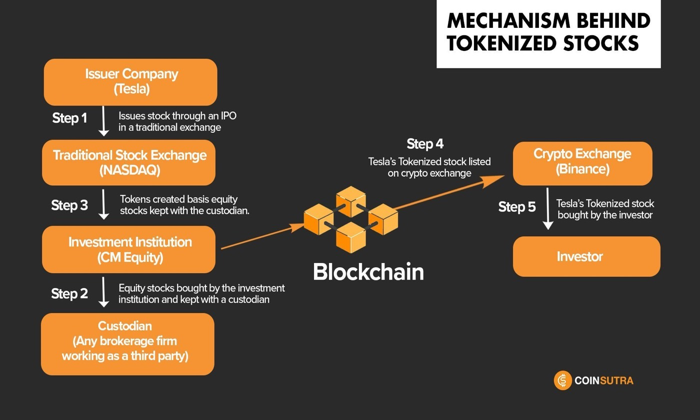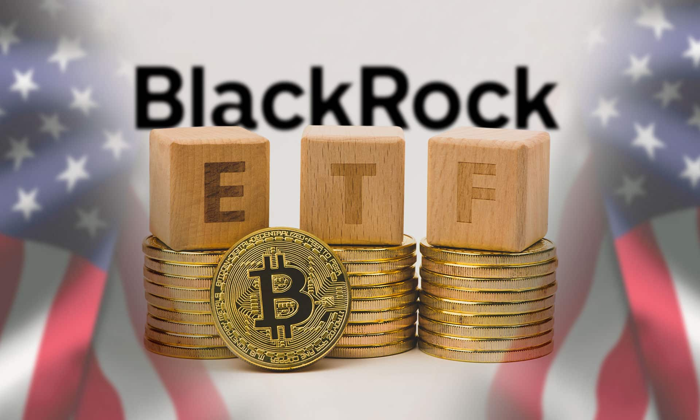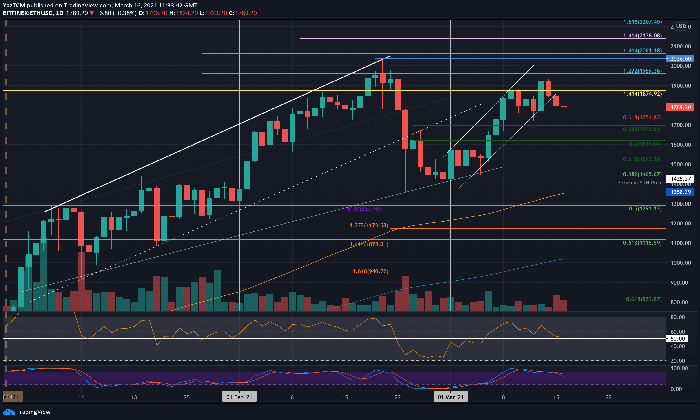Blockchain networks are rapidly transforming the financial landscape by providing decentralized solutions that empower users amidst growing geopolitical tensions. As governments around the world impose tariffs and capital controls, the functionality and accessibility of blockchain networks are at risk of fragmentation, leading to potential disruptions for users. Crypto executives highlight that these geopolitical dynamics have serious implications, such as regulatory inconsistencies and vulnerabilities within the crypto market. The effects on Bitcoin and other cryptocurrencies could be profound, especially as trade wars threaten the integrity of supply chains essential for blockchain infrastructure. Therefore, understanding the intricacies of these networks in the face of such challenges is crucial for navigating the future of digital assets.
Digital ledger technologies, often referred to as decentralized networks, are gaining traction as businesses and consumers seek alternatives in a climate marked by increasing friction between nations. The implications of tariffs, restrictions on capital flows, and an escalating geo-economic landscape are driving concerns about potential fragmentation within these networks. Such complexities could lead to operational vulnerabilities, especially for cryptocurrencies like Bitcoin, which depend heavily on a robust infrastructure and global supply chains. As regulators respond to these challenges, the crypto market may experience shifts that redefine its stability and accessibility for users around the globe. Thus, comprehending the nuances of these cutting-edge technologies is essential in a world fraught with uncertainty.
Impact of Geopolitical Tensions on Blockchain Networks
Geopolitical tensions like trade wars are beginning to have significant implications on blockchain networks globally. As tensions rise, especially among major economies, there is a real risk of fragmentation within these systems. Crypto executives are witnessing the potential for barriers to emerge that disrupt previously seamless international transactions, creating rifts in the blockchain ecosystem itself. The fallout from tariffs and regulatory hurdles can impede the operation of essential node operators and validators who form the backbone of blockchain activities, thereby limiting accessibility for users.
Additionally, the landscape of blockchain technology is inherently global, relying on international collaboration and supply chains. Heightened geopolitical risks could force countries to impose capital controls that might restrict transaction flows across borders. These restrictions could inhibit the free exchange of digital assets, rendering blockchain networks less effective and reducing their overall adoption. Consequently, fostering a more fragmented digital asset economy, where access becomes unequal and controlled, is a pressing concern for industry leaders.
The Ripple Effects of Tariffs on Cryptocurrency Markets
The decision to implement tariffs can have immediate ramifications, not just in the traditional markets but also in the cryptocurrency space. After the announcement of potential tariffs by US officials, the crypto market saw a noticeable dip, reflecting the uncertainty and anxiety that permeates financial circles during such geopolitical shifts. A 4% decrease in the market capitalization of cryptos demonstrates just how quickly investor sentiment can change, signaling vulnerability within asset valuations and leading to a cautious approach among traders.
The uncertainty surrounding tariffs can create an environment rife with speculation and impulsive trading behavior, thus affecting the overall stability of cryptocurrency investments. Crypto holders, especially those invested in Bitcoin and other digital currencies, may find themselves in a precarious position facing increased volatility. This is particularly true for assets relying on complex supply chains for hardware and technology, as seen with Bitcoin mining operations vulnerable to tariffs on imported equipment.
Bitcoin’s Vulnerabilities Amid Global Trade Wars
Bitcoin, the flagship cryptocurrency, stands at a precarious intersection where its vulnerabilities may become pronounced during heightened global trade tensions. The reliance on specialized hardware for mining, particularly sourced from manufacturers in China, creates a critical point of exposure to tariff impacts. Should tariffs increase on these essential components, the costs for miners could escalate, potentially leading to decreased mining activity and reduced network security.
Moreover, if the repercussions of a trade war lead to broader economic instability, Bitcoin’s role as a store of value could be challenged. As capital controls tighten within various jurisdictions, individuals in those regions may struggle to acquire Bitcoin, creating a barrier to entry that goes against the very ethos of decentralized finance. Such developments could hinder Bitcoin’s adoption and alienate users who view it as a safe haven from geopolitical risks.
Effects of Capital Controls on Crypto Accessibility
The imposition of capital controls during times of political and economic uncertainty represents a significant barrier for the crypto community. These restrictions can limit how individuals transfer assets across borders, directly impacting their ability to invest in cryptocurrencies. For many, the promise of blockchain technology lies in its ability to circumvent traditional banking restrictions, but with increased regulatory scrutiny in many countries, this is becoming increasingly difficult.
As governments tighten their grip on monetary flows, exchanges may also face increased scrutiny or closure, further complicating the acquisition and use of cryptocurrencies. The risk of losing access to crypto markets not only undermines potential investment opportunities but also curtails the financial independence that blockchain technology aims to promote. Therefore, capital controls have the potential to erode the foundational principles of accessibility and inclusivity that are fundamental to the cryptocurrency movement.
Cryptocurrencies as a Hedge Against Economic Uncertainty
Despite the challenges posed by geopolitical tensions and trade wars, cryptocurrencies continue to emerge as a potential hedge against economic uncertainty. As traditional financial systems face destabilizing forces driven by tariffs and political strife, the decentralized nature of crypto creates a counterbalance. This resilience is particularly evident as market players seek refuge in assets like Bitcoin, which has shown signs of stability amidst broader market fluctuations.
The continued interest in digital currencies highlights the shifting mindset of investors who are increasingly viewing cryptocurrencies as viable alternatives to fiat currencies. In times of crisis, when trust in central banks and governments wanes, the utility of blockchain networks as secure, permissionless infrastructures can provide both a buffer against inflation and a means of preserving capital, showcasing the growing appeal of decentralized finance in an uncertain world.
Navigating Regulatory Fragmentation in Blockchain
As geopolitical tensions escalate, the resulting regulatory fragmentation poses a distinct challenge for blockchain networks. Countries may adopt contradictory stances concerning the legality and operation of cryptocurrencies, creating a patchwork of regulations that complicate compliance for blockchain-related businesses. Navigating these rules will require significant adjustments from leaders in the crypto space, who must ensure that they operate within varying jurisdictions without sacrificing their core principles.
The divergence in regulations could stifle innovation within the blockchain space, as companies may be hesitant to engage in cross-border transactions for fear of non-compliance. This uncertainty could stymie the development of robust decentralized applications and services, which are critical for fostering a thriving blockchain ecosystem. Thus, it is essential for industry advocates to push for clearer regulatory frameworks that support collaboration and growth across borders, ensuring the longevity and resilience of blockchain networks.
Opportunities Arising from Market Volatility
While market volatility stemming from geopolitical events can be intimidating, it also presents unique opportunities for the cryptocurrency sector. As traditional financial markets fluctuate, many investors are turning to blockchain-based assets as a potentially lucrative alternative. This shift not only enhances the credibility of crypto as a legitimate asset class but also encourages innovative practices within the industry as new players emerge to meet shifting investor demands.
Moreover, the challenges faced in turbulent times often lead to rapid advancements in cryptocurrency technology, encouraging the development of advanced solutions for scalability and security. By addressing vulnerabilities laid bare by external pressures, the crypto community can emerge stronger, more refined, and better prepared for future challenges, establishing blockchain networks as resilient players in the global financial landscape.
The Importance of Collaboration in a Fragmented Financial Landscape
During times of heightened geopolitical tension, collaboration becomes a vital component in ensuring the stability and growth of blockchain networks. As nations grapple with differing policies and regulations, fostering partnerships among crypto stakeholders can help create cohesive strategies that transcend borders. Blockchain technology offers a unique opportunity for collaboration, where shared knowledge and resources can enhance decentralized platforms, enabling crypto markets to withstand external shocks.
By promoting alliances between regulatory bodies, developers, and investors, the blockchain industry can advocate for clear guidelines that allow for safe innovation and user access. Collaborative efforts can also serve to demystify blockchain technology, encouraging broader adoption and understanding among potential users concerned about security and regulatory compliance. In times of instability, unity within the industry will be crucial for sharing best practices and resources that push the entire sector toward sustainable growth.
Future Prospects of Blockchain in a Changing World Order
Looking ahead, the future prospects for blockchain networks remain intricately tied to global economic and political dynamics. As trade disputes and geopolitical tensions fluctuate, these pressures will undoubtedly shape the trajectory of digital currencies. Increased digitization and the integration of blockchain technology into various sectors may pave the way for more resilient systems better equipped to handle external disruptions.
Ultimately, the position of cryptocurrencies in the global financial system is likely to evolve, with increased recognition of their inherent value as both investment assets and technological innovations. As traditional financial barriers diminish in the face of new digital frameworks, users and investors alike will continue to navigate an increasingly interconnected world that leverages the strengths of decentralized finance in unexpected ways.
Frequently Asked Questions
How do geopolitical tensions affect blockchain networks?
Geopolitical tensions can fragment blockchain networks by disrupting infrastructure and restricting access to services. As countries impose tariffs and capital controls, the physical and regulatory environment for blockchain operations, such as node functioning and transactions, can become more complex and less accessible.
What are the implications of tariffs on blockchain networks?
Tariffs can significantly impact blockchain networks by affecting the supply chain of crucial hardware like ASIC chips used for Bitcoin mining. As these tariffs lead to increased costs and potential shortages, they create obstacles for node operators and validators essential to maintaining the integrity of blockchain networks.
Are there vulnerabilities related to Bitcoin due to international trade issues?
Yes, Bitcoin exhibits vulnerabilities as international trade tensions can disrupt its supply chain for mining hardware. This affects the network’s ability to function efficiently and can hinder accessibility for users, amplifying the risks associated with investment and usage in Bitcoin.
How might capital controls influence users of blockchain networks?
Capital controls can limit users in restrictive countries from easily acquiring Bitcoin and accessing decentralized blockchain networks. This could lead to increased regulatory scrutiny over exchanges and hinder the ability for individuals to utilize cryptocurrencies in their daily transactions.
What effects do geopolitical uncertainties have on the crypto market?
Geopolitical uncertainties often lead to market volatility in the crypto sector, as seen in the drop in cryptocurrency market capitalization during tensions. Traders may react to news about tariffs and trade wars, which can create significant price fluctuations and impact investor confidence in blockchain networks.
How can blockchain networks demonstrate resilience during political disruptions?
Blockchain networks can show resilience by maintaining functioning infrastructure and strong user engagement despite geopolitical disruptions. The decentralized and permissionless nature of these technologies allows them to adapt and continue to operate, showcasing their long-term value amidst challenges.
| Key Point | Details |
|---|---|
| Geopolitical Tensions | Increasing geopolitical tensions threaten to fragment blockchain networks and restrict access for users. |
| Impact of Tariffs | Proposed tariffs may disrupt the supply chains of necessary hardware for blockchain technologies and put node operators at risk. |
| Bitcoin Vulnerabilities | Bitcoin relies heavily on specialized hardware (like ASIC chips), making it susceptible to trade wars affecting these supply chains. |
| Capital Controls | Stricter capital controls could hinder citizens of restrictive countries from acquiring Bitcoin, complicating its usage. |
| Resilience of Crypto | Despite challenges, Bitcoin shows resilience and underscores the need for decentralized blockchain networks in uncertain times. |
Summary
Blockchain networks play an essential role in the modern economy, especially amid rising geopolitical tensions and regulatory fragmentation. As discussed, tariffs and capital controls threaten to disrupt these networks, impacting access for users and the infrastructure supporting cryptocurrencies. However, the same challenges also highlight the resilience of blockchain technologies, emphasizing their importance as a decentralized solution in a world filled with uncertainty. Moving forward, the adoption and appreciation of blockchain networks are likely to grow as they adapt to these external pressures.
Blockchain networks, the backbone of modern cryptocurrency systems, are facing unprecedented challenges due to escalating geopolitical tensions. As global trade disputes evolve, particularly concerning tariffs and capital controls, these decentralized networks could experience fragmentation, impacting access for users worldwide. Crypto executives have warned that aggressive trade policies not only threaten the infrastructure of blockchain networks but also amplify vulnerabilities within the crypto market. With Bitcoin’s reliance on specialized hardware and the potential disruption of supply chains, investors are becoming increasingly wary of market effects stemming from such geopolitical strife. The need for resilience in these systems is more crucial than ever, as they navigate the complexities of international trade dynamics.
Decentralized ledger technologies have revolutionized the way we perceive currency and transactions, but they are now at a crossroads due to shifting global political landscapes. Industry professionals are raising alarms about how trade tensions and restrictive economic measures could fracture these innovative networks, limiting their effectiveness and reach. As trade wars loom, the ramifications on cryptocurrency reliance and security are more pronounced, leading to urgent discussions about the stability of crypto operations and investments. Cryptocurrency’s inherent vulnerabilities come to the forefront, especially as regulatory pressures mount amidst tightening capital controls. This landscape not only reflects immediate risks but also highlights the broader implications for users and adopters of these transformative financial technologies.















